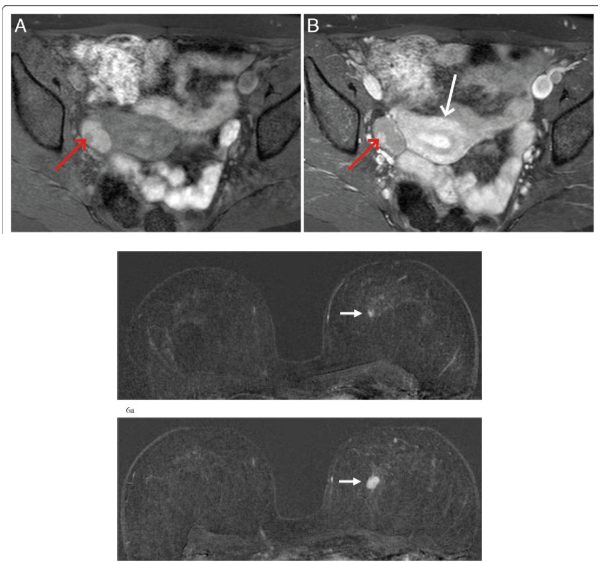By: Geraldus Sigap
Cancer remains one of the leading health challenges faced by women worldwide. Among the most prevalent and deadly types of cancer affecting women are cervical, breast, and ovarian cancers. The good news is that with advancements in medical science, early detection and screening have become powerful tools in combating these diseases. By detecting cancer in its early stages, the chances of successful treatment and survival increase significantly, making regular screening an essential part of women’s health care.

Figure 1. Cancer in Women
Breast cancer is the most common cancer in women globally, but it is also one of the most treatable when detected early. Mammograms are the gold standard for breast cancer screening, especially for women over 40. This imaging technique can detect tumors that are too small to be felt, allowing for earlier and less invasive treatment options. For women with dense breast tissue or those at higher risk, a Mammae MRI can provide even more detailed images, improving the accuracy of diagnosis. Early detection through mammograms and MRIs can significantly reduce breast cancer mortality. Women are encouraged to undergo regular screening according to their age and risk factors, as outlined by medical guidelines.
Ovarian cancer is often called the “silent killer” because its symptoms are vague and often go unnoticed until the disease is advanced. Unlike cervical and breast cancers, there is no reliable screening test for ovarian cancer, making awareness of symptoms and risk factors crucial. Symptoms such as bloating, pelvic pain, and changes in bowel habits should not be ignored, especially in women with a family history of ovarian or breast cancer. For women at high risk, such as those with BRCA gene mutations, regular check-ups and imaging tests like transvaginal ultrasounds and blood tests for CA-125 (a tumor marker) can help in early detection. However, these methods are not foolproof, and ongoing research is focused on developing more effective screening techniques.
MRI findings for breast and ovarian cancer can be pivotal in early detection. In breast cancer, MRI may reveal masses, unusual tissue patterns, or abnormal enhancements, especially in women with dense breast tissue. These findings often lead to further investigation, like a biopsy, which can confirm the presence of malignancies, allowing for earlier, more effective treatment. For ovarian cancer, MRI can detect masses, fluid buildup, or structural irregularities in the ovaries. Since ovarian cancer often presents vague symptoms, a positive MRI result can guide staging and treatment decisions, emphasizing the need for vigilance and regular check-ups to catch cancer early and improve outcomes.

Figure 2. Ovarian (A-B) and Breast Cancer
At Abdi Waluyo Hospital, we are committed to empowering women through early detection and comprehensive screening programs. Our state-of-the-art Mammae MRI check-up and screening packages are designed to provide detailed and accurate assessments, particularly for those at higher risk of breast cancer. With a focus on personalized care, our team of specialists works closely with each patient to develop a tailored screening plan that aligns with their individual health needs. Our advanced facilities and experienced medical professionals ensure that you receive the highest quality care in a supportive environment.
Resources
- What Cancer Screening Tests Check for Cancer? – NCI [Homepage on the Internet]. 2015 [cited 2024 Aug 10];Available from: https://www.cancer.gov/about-cancer/screening/screening-tests
- Ovarian cancer – Symptoms and causes [Homepage on the Internet]. Mayo Clin. [cited 2024 Aug 10];Available from: https://www.mayoclinic.org/diseases-conditions/ovarian-cancer/symptoms-causes/syc-20375941
